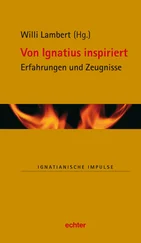Ignatius Donnelly - Antediluvian world
Здесь есть возможность читать онлайн «Ignatius Donnelly - Antediluvian world» весь текст электронной книги совершенно бесплатно (целиком полную версию без сокращений). В некоторых случаях можно слушать аудио, скачать через торрент в формате fb2 и присутствует краткое содержание. Жанр: Старинная литература, на русском языке. Описание произведения, (предисловие) а так же отзывы посетителей доступны на портале библиотеки ЛибКат.
- Название:Antediluvian world
- Автор:
- Жанр:
- Год:неизвестен
- ISBN:нет данных
- Рейтинг книги:5 / 5. Голосов: 1
-
Избранное:Добавить в избранное
- Отзывы:
-
Ваша оценка:
- 100
- 1
- 2
- 3
- 4
- 5
Antediluvian world: краткое содержание, описание и аннотация
Предлагаем к чтению аннотацию, описание, краткое содержание или предисловие (зависит от того, что написал сам автор книги «Antediluvian world»). Если вы не нашли необходимую информацию о книге — напишите в комментариях, мы постараемся отыскать её.
Antediluvian world — читать онлайн бесплатно полную книгу (весь текст) целиком
Ниже представлен текст книги, разбитый по страницам. Система сохранения места последней прочитанной страницы, позволяет с удобством читать онлайн бесплатно книгу «Antediluvian world», без необходимости каждый раз заново искать на чём Вы остановились. Поставьте закладку, и сможете в любой момент перейти на страницу, на которой закончили чтение.
Интервал:
Закладка:
The vital conviction which, during thousands of years, at all times pressed home upon the Israelites, was that they were a “chosen people,”
selected out of all the multitude of the earth, to perpetuate the great truth that there was but one God—an illimitable, omnipotent, paternal spirit, who rewarded the good and punished the wicked—in contradistinction from the multifarious, subordinate, animal and bestial demi-gods of the other nations of the earth. This sublime monotheism could only have been the outgrowth of a high civilization, for man’s first religion is necessarily a worship of “stocks and stones,” and history teaches us that the gods decrease in number as man increases in intelligence. It was probably in Atlantis that monotheism was first preached. The proverbs of “Ptah-hotep,” the oldest book of the Egyptians, show that this most ancient colony from Atlantis received the pure faith from the mother-land at the very dawn of history: this book preached the doctrine of one God, “the rewarder of the good and the punisher of the wicked.” (Reginald S. Poole, Contemporary Rev., Aug., 1881, p. 38.) “In the early days the Egyptians worshipped one only God, the maker of all things, without beginning and without end. To the last the priests preserved this doctrine and taught it privately to a select few.” (“Amer. Encycl.,” vol. vi., p. 463.) The Jews took up this great truth where the Egyptians dropped it, and over the beads and over the ruins of Egypt, Chaldea, Phoenicia, Greece, Rome, and India this handful of poor shepherds—ignorant, debased, and despised—have carried down to our own times a conception which could only have originated in the highest possible state of human society.
And even skepticism must pause before the miracle of the continued existence of this strange people, wading through the ages, bearing on their shoulders the burden of their great trust, and pressing forward under the force of a perpetual and irresistible impulse. The speech that may be heard to-day in the synagogues of Chicago and Melbourne resounded two thousand years ago in the streets of Rome; and, at a still earlier period, it could be heard in the palaces of Babylon and the shops of Thebes—in Tyre, in Sidon, in Gades, in Palmyra, in Nineveh. How many nations have perished, how many languages have ceased to exist, how many splendid civilizations have crumbled into ruin, bow many temples and towers and towns have gone down to dust since the sublime frenzy of monotheism first seized this extraordinary people! All their kindred nomadic tribes are gone; their land of promise is in the hands of strangers; but Judaism, with its offspring, Christianity, is taking possession of the habitable world; and the continuous life of one people—one poor, obscure, and wretched people—spans the tremendous gulf between “Ptah-hotep” and this nineteenth century.
If the Spirit of which the universe is but an expression—of whose frame the stars are the infinite molecules—can be supposed ever to interfere with the laws of matter and reach down into the doings of men, would it not be to save from the wreck and waste of time the most sublime fruit of the civilization of the drowned Atlantis—a belief in the one, only, just God, the father of all life, the imposer of all moral obligations?
CHAPTER VII.
THE ORIGIN OF OUR ALPHABET
One of the most marvellous inventions for the advancement of mankind is the phonetic alphabet, or a system of signs representing the sounds of human speech. Without it our present civilization could scarcely have been possible.
No solution of the origin of our European alphabet has yet been obtained: we can trace it back from nation to nation, and form to form, until we reach the Egyptians, and the archaic forms of the Phoenicians, Hebrews, and Cushites, but beyond this the light fails us.
The Egyptians spoke of their hieroglyphic system of writing not as their own invention, but as “the language of the gods.” (Lenormant and Cheval, “Anc. Hist. of the East,” vol. ii., p. 208.) “The gods” were, doubtless, their highly civilized ancestors—the people of Atlantis—who, as we shall hereafter see, became the gods of many of the Mediterranean races.
“According to the Phoenicians, the art of writing was invented by Taautus, or Taut, ‘whom the Egyptians call Thouth,’ and the Egyptians said it was invented by Thouth, or Thoth, otherwise called ‘the first Hermes,’ in which we clearly see that both the Phoenicians and Egyptians referred the invention to a period older than their own separate political existence, and to an older nation, from which both peoples received it.” (Baldwin’s “Prehistoric Nations,” p. 91.) The “first Hermes,” here referred to (afterward called Mercury by the Romans), was a son of Zeus and Maia, a daughter of Atlas. This is the same Maia whom the Abbe Brasseur de Bourbourg identifies with the Maya of Central America.
Sir William Drummond, in his “Origines,” said: “There seems to be no way of accounting either for the early use of letters among so many different nations, or for the resemblance which existed between some of the graphic systems employed by those nations, than by supposing hieroglyphical writing, if I may be allowed the term, to have been in use among the Tsabaists in the first ages after the Flood, when Tsabaisin (planet-worship) was the religion of almost every country that was yet inhabited.”
Sir Henry Rawlinson says:
“So great is the analogy between the first principles of the Science of writing, as it appears to have been pursued in Chaldea, and as we can actually trace its progress in Egypt, that we can hardly hesitate to assign the original invention to a period before the Hamitic race had broken up and divided.”
It is not to be believed that such an extraordinary system of sound-signs could have been the invention of any one man or even of any one age. Like all our other acquisitions, it must have been the slow growth and accretion of ages; it must have risen step by step from picture-writing through an intermediate condition like that of the Chinese, where each word or thing was represented by a separate sign.
The fact that so old and enlightened a people as the Chinese have never reached a phonetic alphabet, gives us some indication of the greatness of the people among whom it was invented, and the lapse of time before they attained to it.
Humboldt says:
“According to the views which, since Champollion’s great discovery, have been gradually adopted regarding the earlier condition of the development of alphabetical writing, the Phoenician as well as the Semitic characters are to be regarded as a phonetic alphabet that has originated from pictorial writing; as one in which the ideal signification of the symbols is wholly disregarded, and the characters are regarded as mere signs for sounds.” (“Cosmos,” vol. ii., p. 129.) Baldwin says (” Prehistoric Nations,” p. 93): “The nation that became mistress of the seas, established communication with every shore, and monopolized the commerce of the known world, must have substituted a phonetic alphabet for the hieroglyphics as it gradually grew to this eminence; while isolated Egypt, less affected by the practical wants and tendencies of commercial enterprise, retained the hieroglyphic system, and carried it to a marvellous height of perfection.”
It must be remembered that some of the letters of our alphabet are inventions of the later nations. In the oldest alphabets there was no c, the g taking its place. The Romans converted the g into c; and then, finding the necessity for a g Sign, made one by adding a tail-piece to the c (C, G). The Greeks added to the ancient alphabet the upsilon, shaped like our V or Y, the two forms being used at first indifferently: they added the X sign; they converted the t of the Phoenicians into th, or theta; z and s into signs for double consonants; they turned the Phoenician y (yod) into i (iota). The Greeks converted the Phoenician alphabet, which was partly consonantal, into one purely phonetic—”a perfect instrument for the expression of spoken language.” The w was also added to the Phoenician alphabet. The Romans added the y. At first i and j were both indicated by the same sound; a sign for j was afterward added. We have also, in common with other European languages, added a double U, that is, VV, or W, to represent the w sound.
Читать дальшеИнтервал:
Закладка:
Похожие книги на «Antediluvian world»
Представляем Вашему вниманию похожие книги на «Antediluvian world» списком для выбора. Мы отобрали схожую по названию и смыслу литературу в надежде предоставить читателям больше вариантов отыскать новые, интересные, ещё непрочитанные произведения.
Обсуждение, отзывы о книге «Antediluvian world» и просто собственные мнения читателей. Оставьте ваши комментарии, напишите, что Вы думаете о произведении, его смысле или главных героях. Укажите что конкретно понравилось, а что нет, и почему Вы так считаете.












